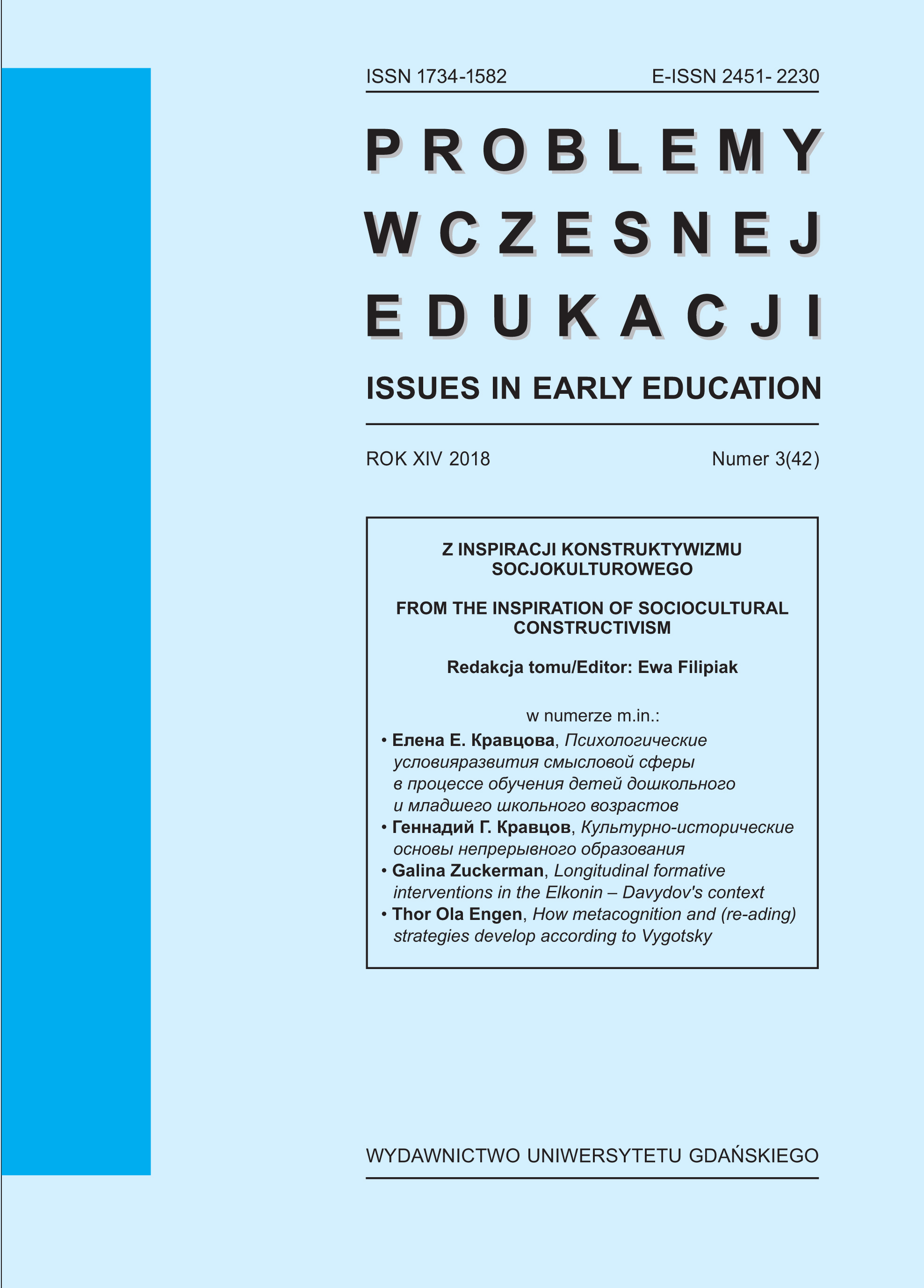Культурно-исторические основы непрерывного образования
DOI:
https://doi.org/10.26881/pwe.2018.42.02Abstrakt
An adequate theory of the child’s mental development, which can be located in the system of continuous education, is to be sought in the works of L.S. Vygotsky. He proposed non-classical psychology which views development as self-development, which implies creation of a special logic, awareness of the developmental progress. A special position in it is occupied by awareness and the process of learning about it. In the paper the ontogenesis of awareness is considered, in particular the systemic and sensory structure of awareness proposed by L.S. Vygotsky. In this context periodization of the child’s mental development is considered. The idea of sensual structure of awareness has been analysed on the basis of L.S. Vygotsky’s works, as well as on the results of my long-term own research.
Downloads
Bibliografia
Выготский Л.С. (1982), Исторический смысл психологического кризиса. Методологическое исследование. В: Л.С. Выготский, Собрание сочинений в шести томах. Т. 1. Вопросы теории и истории психологии. Под ред. А.Р. Лурия, М.Г. Ярошевского. Москва, Изд-во Педагогика.
Выготский Л.С. (1960), История развития высших психических функций. В: Л.С. Выготский, Развитие высших психических функций. Москва, Изд-во Академии педагогических наук.
Выготский Л.С. (1956), Мышление и речь. В: Л.С. Выготский, Избранные психологические исследования. Москва, Изд-во Академии педагогических наук РСФСР.
Спиноза Б. (1892), Этика. Москва, Труды Московского Психологического общества.

 Uniwersyteckie Czasopisma Naukowe
Uniwersyteckie Czasopisma Naukowe





